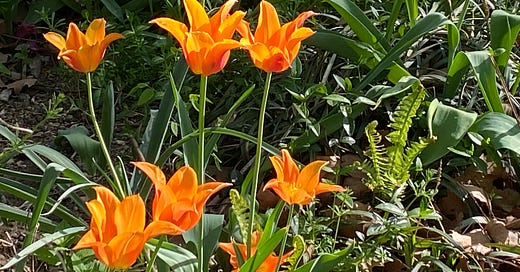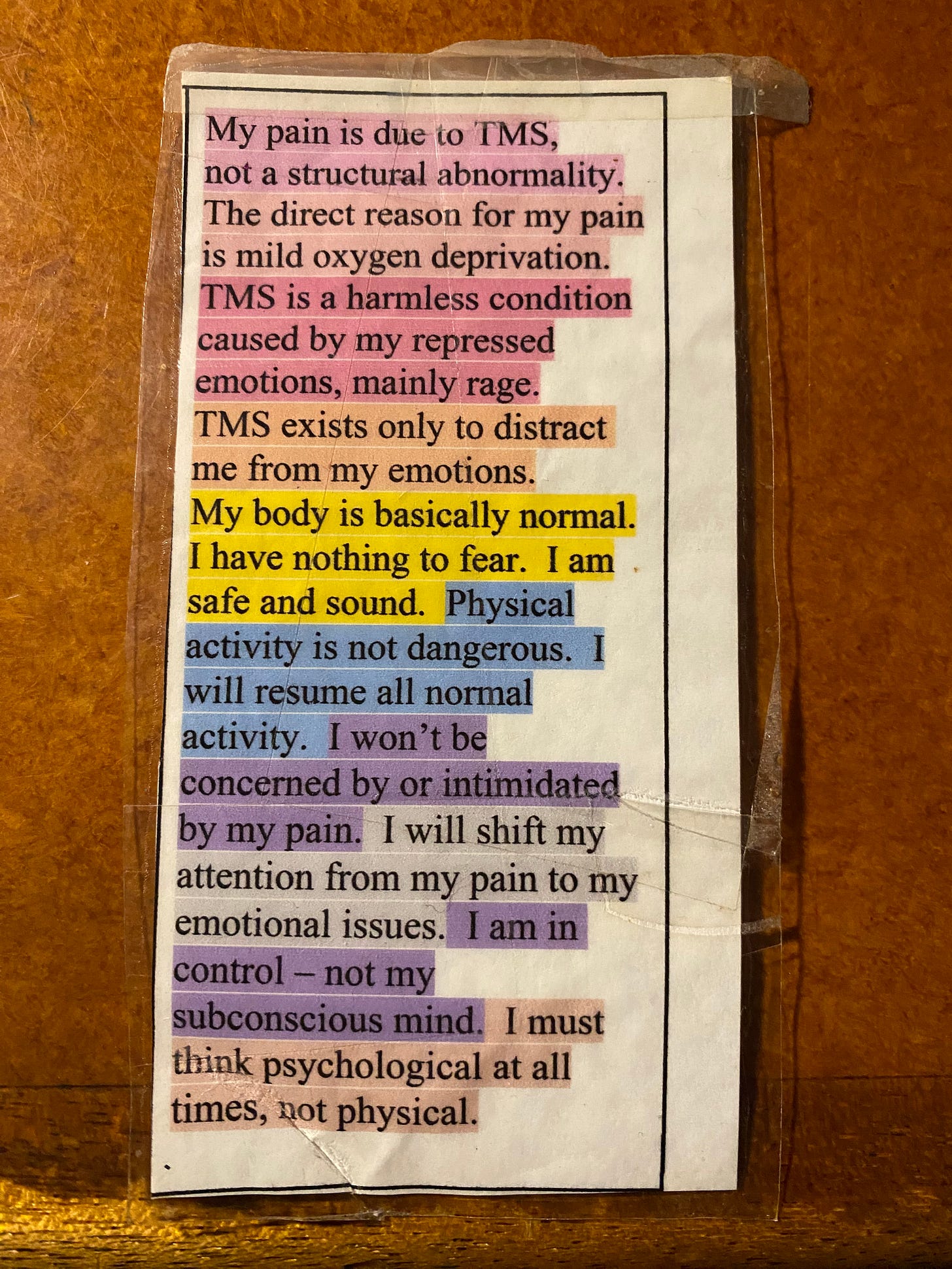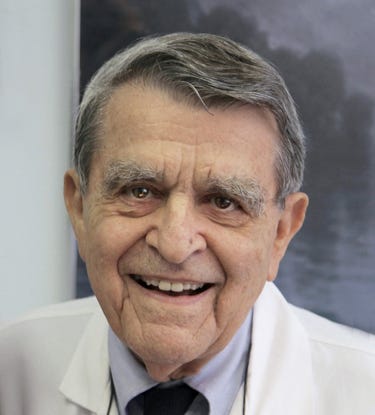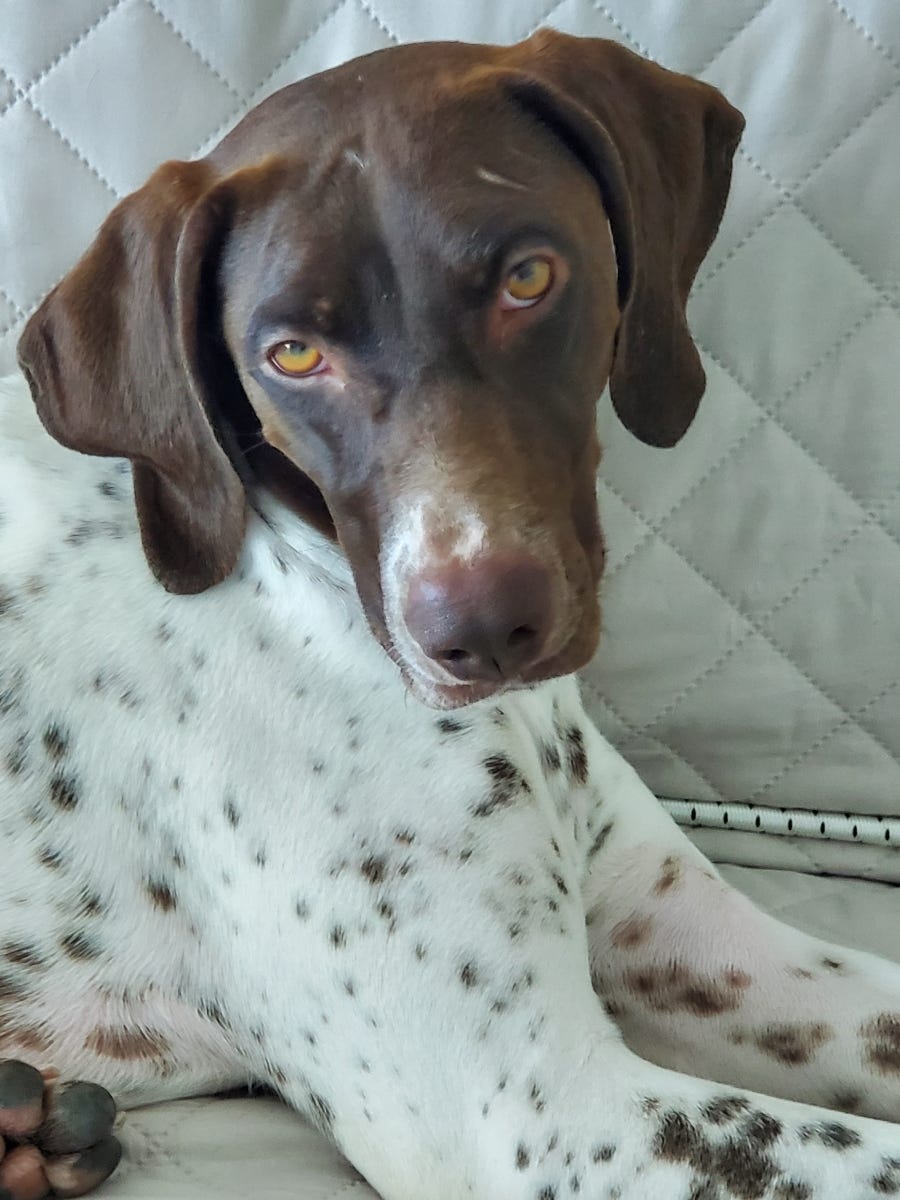We are biologies, not just creatives. When life happens, sometimes creativity has to hop in the backseat. Who else does the cleaning/wash, the food prep & the all emotional labor to foster ease? I didn't write for over 10 years.
I didn't know back then that I'm Audhd, but I knew I was unwell and overwhelmed. I knew I had to spend my spoons on caring for my family, and I knew that writing had to wait. The more the writing waited, the sicker I got. I didn't connect the two until I went to see Dr John E. Sarno (may his memory be for a blessing). He wrote Healing Back Pain, but maybe you suffer (as I did) with something beyond back pain.
He also wrote, The Mindbody Prescription. Here’s a photo of my cheat sheet from it:
I've carried this with me for almost 20 years. As someone who has suffered with chronic pain from several diagnosed conditions, this saved my life.
You may be thinking, but I have a diagnosis! I know why I have this pain! And he would say, "yes, and here's a new approach. No side effects!" He had an 85% cure rate. Before he taught his patients to think differently about their pain, he had done plenty of back surgeries. But those only had a 50% cure rate. He noticed that if he fixed one physical, diagnosable pain, patients would come back with another. So he decided to change people’s minds instead.
When I met Dr. Sarno he did an hour-long intake exam. He got me to admit that even though I’d seen over 22 productions of my plays, and I had an MFA from the University of Iowa, I wasn't writing. He asked me about that. I must have said something about how hard it was being sick and managing a family, and he countered with, "do you want to live or die?" When I said "live," he said, "then you'll have to write every day and try to get those feelings of yours onto the page. Several pages a day!"
Sarno didn’t see people just once. He offered monthly check-ins with groups and lectures. This sweet old Italian guy in a white doctor's coat made me prioritize my morning pages again in spite of my staggering life. (Yes, the morning pages made famous by Julia Cameron in her book The Artists Way.)
I learned to talk back to my pain. Eventually I learned to befriend it, get to know it as a part, and unburden. I made a creative practice out of my suffering in order to heal.
I think about people in pain, whether that’s physical or emotional, people feeling stuck or defeated. A lot of the time, I used to tell myself it didn’t matter. I’d get to it later. But even when I did have time carved out, I couldn’t focus. It was hard to crawl out of my circumstances to return to my writing practice. And my practice had to change to accommodate each different stage in my creative journey.
Maybe you feel as I did, lost without any breadcrumbs pointing toward the way home to yourself? I offer Brave Space to make it easier.
This past week someone came to Brave Space to paint with watercolors. Not as an "artist" but as a person who needed time and space to play. Not looking to create an outcome or a product. Looking for the time and space necessary to feel alive.
This world is hellbent on insisting that everything must be worth something, that every action be transactional. We have to fight against this idea, or we'll lose the ability to live creatively.
To feel whole I need quiet time and space to gather myself into myself and write down all the pixels in a day that touched my skin and washed sounds through my head so that I can cleanse myself of everything I've lived through. If I don't do these things I fill up with noise.
Maybe it's an Audhd experience, but when I was a child ice skating at Radnor Rink, sometimes the lights would get so bright and the sounds of the blades scraping the ice got terribly loud. Voices and vending machines, doors slamming and music playing, everything would rise to a swollen symphony against my eardrums. I'd be breathless with sensations, but I couldn't let anyone know. Afraid I'd be sent to a mental hospital, Bellevue was a common threat in my house. I knew early that reaching out to ask for help often meant being punished for asking. I have never put the experience into words before.
I am proud to offer a space to provide permission to play. Yes, people in Brave Space produce and publish great work. We cheer each other on, and without competing - over what? We are each so unique! Brave Space is about the practice not the products.
The practice of creativity allows each of us an opening as different as any breeze affecting each branch on many trees in myriad ways. To arrive in a space where you know you will spend an hour with permission to create is easier in community. Less a confrontation with one's self and more a gentle inquiry. This is why Brave Space always begins with grounding, so we can be more present in support of our full breadth and vision.
I see the waves of change in the people who come to Brave Space. How doubt and judgment arrive and dissolve. How they get on a roll until life intervenes, pause, and then return to Brave Space to rediscover the dream of the work again, a new way to practice. Anything is possible. Join us.
Brave Space Sched:
Brave Sched for 2/12 - 2/16/24
Monday 11am ET
Thursday 11am ET
Friday 12pm ET
Brave Sched for 2/19 - 2/23/24
Monday 12pm ET
Tuesday 12pm ET w/Short Shares
Thursday 12pm
Friday 12pm - 2pm Brave Sharing Salon
Brave Sched for 2/26 - 3/1/24
Monday 12pm ET
Tuesday 12pm ET w/Short Shares
Thursday 12pm ET
Friday 12pm ET
Brave Sched for 3/4 - 3//8/24
Monday 12pm ET
Tuesday 12pm ET w/Short Shares
Thursday 12pm ET
Friday 12pm ET
Writing Prompt:
BEGIN - what does it mean to have a clean slate? how does it feel to start over? what if you had to start from scratch? when your protagonist is at a loss for what to do next, their lowest point, what gives them the energy to try again? what glimmers of hope shine out at them through what newly-seen crack? how do we find a way forward again and again? WRITE without stopping a description of a place seen through the eyes of your protagonist when they are in despair. WRITE without stopping a description of the same place seen by the same protagonist when they have found some hope to hang onto. WRITE the description of the same place from the antagonist's point of view as they try to stop the protagonist. What is your protagonist’s highest point? Greatest triumph? Wildest dream? Where do they want to end up? And that low point - how low is it? What extremes can you find to show the greatest journey? How can you build in the understanding of what it would mean to achieve the best thing? How does the way we see the world affect our actions and our achievements? How does a simple interaction allow us to show internal conflict? Get specific over the things your protagonist notices, what bothers them, and what they do, and in what way. These exercises are meant to help you to allow yourself to write badly. Give yourself permission to play.
I’d love to hear how it goes! What happened? What did you learn by doing? What’s your process? Did you have fun?
Nina Ballerina, from Rochelle Aruti.
Onward,
Emma







May his memory be for a blessing!
This is profound, Emma...all of it. Thank you.